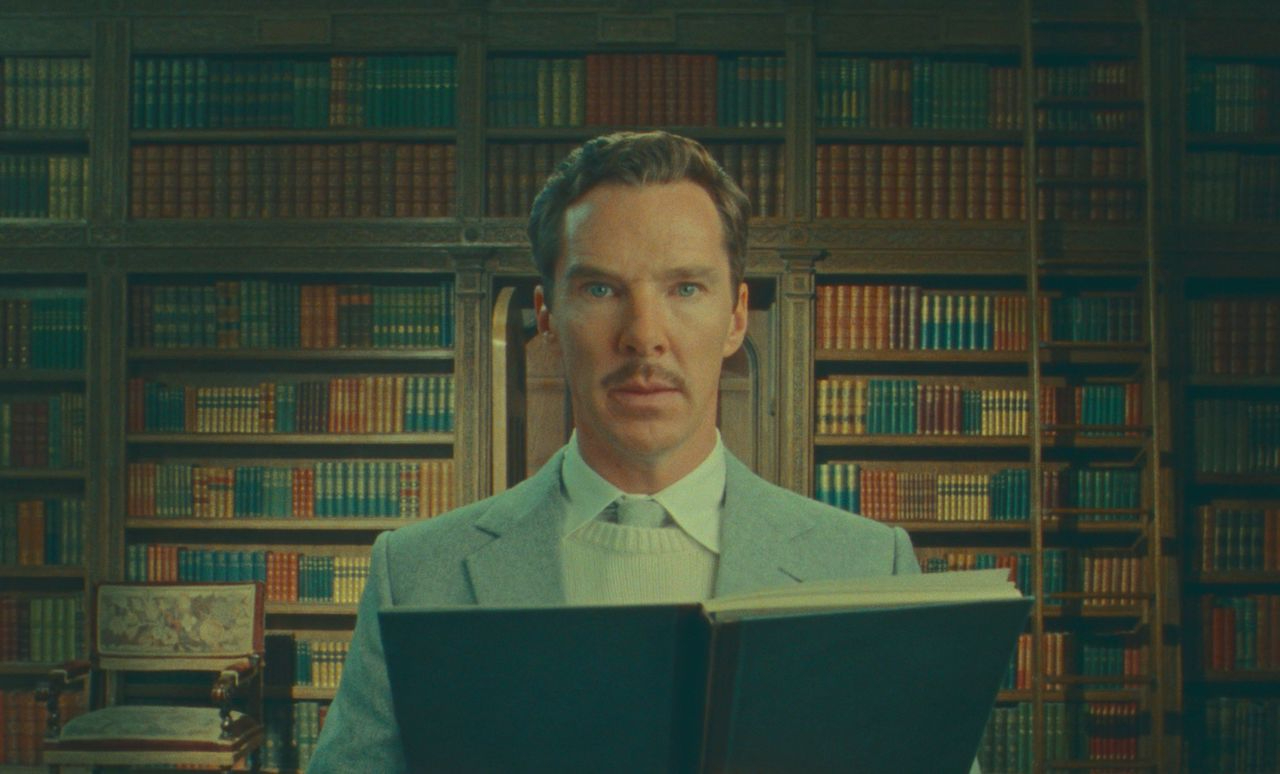The Wonderful Story of Henry Sugar

Wes Anderson is almost a mythical figure at this point, which might be why his newest films appear to be events for every cinema lover, evoking intense emotions even in those who have stopped adoring Anderson’s sugar-coated style. Those who haven’t liked the director’s work recently could treat this newest production as a source of proverbial rapprochement, in order to once again fall in love with his unique vision.
While stating that Anderson has been making the same film over and over again for the last ten years is a huge overstatement, there is a sense of repetition in the form that creeps into his structural and audiovisual artistry. The style is enticing, even addictive, but it lacks freshness – an aspect so important in such a massive industry. The Wonderful Story of Henry Sugar, contrary to this year’s Asteroid City, is not trying to push any new limits and propose anything refreshing or thematically groundbreaking. The project is as simple as this: Anderson takes his favourite actors, makes theatre the film’s raison d’être and fills it with scintillating blithe humour and liveness. Based on Roald Dahl’s work, it tells the concise story of Henry Sugar (Benedict Cumberbatch), a wealthy individual, who decides to deliberately change his life after reading a mysterious book called The Man Who Could See Without Using His Eyes. Seemingly, the film adheres to the plot till the very end, but the story, like Anderson’s filmography, is not that substantial.
Casting is extremely powerful, as its three most important actors (Ralph Fiennes, Cumberbatch and Ben Kingsley) become untrammelled Andersonian figures freely stealing the show. Despite the tale of the eponymous Sugar being scarcely 40 minutes long, it truly works as a standalone film experience, and not only for Roald Dahl aficionados (it’s no secret that the piece is relatively little known). Fortunately, it is not another unnecessary formal and experimental whim directed by an artist who slowly loses himself in all his (un)exceptional ideas. Anderson still genuinely focuses on the humour and his newest “comedy” is an ideal example of how he pursues in-film theatricality.
Either way, Henry Sugar is a blessing for anyone interested in Anderson adapting Dahl. In a film in which all of the narrators (actors) are omniscient and self-critical, and the director is willing to use his “magic” to make us feel entertained, everything can happen. Viewers are advised to just let it flow and enjoy this small, but amusing film, where everything is treated with conscientious caress.
Jan Tracz
The Wonderful Story of Henry Sugar is released on Netflix on 27th September 2023.
Read more reviews from our Venice Film Festival 2023 coverage here.
For further information about the event visit the Venice Film Festival website here.























Facebook
Twitter
Instagram
YouTube
RSS